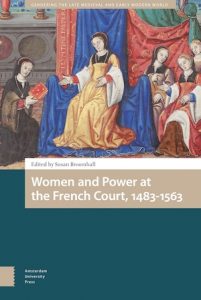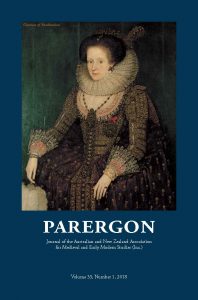Congratulations to all the recipients of ANZAMEMS biennial conference awards and publication prizes, announced last week at the ANZAMEMS 2019 conference.
2018 Philippa Maddern Early Career Researcher Publication Prize
Kirk Essary, for his article “Clear as Mud: Metaphor, Emotion and Meaning in Early Modern England”, English Studies, July 2017.
The Philippa Maddern ECR Publication Prize is awarded to an Early Career Researcher (ECR) for the best article-length scholarly work in any discipline/topic falling within the scope of medieval and early modern studies, published within the previous two years.
2018 Patricia Crawford Postgraduate Publication Prize
Amy Brown, for her article “Female Homosociality and the Marriage Plot: Women and Marriage Negotiation in Cligés and Le Chevalier au Lion“, Parergon, 33.1 (2016).
The Patricia Crawford Postgraduate Publication Prize is awarded to a postgraduate student for the best article-length scholarly work in any discipline/topic falling within the scope of medieval and early modern studies, published within the previous two years.
2019 George Yule Prize
Jennifer E. Nicholson (University of Sydney) “’Pronouncing…some [un]doubtful phrase’: Speech, Agency, and Editing Hamlet via Montaigne’s Essais”
The George Yule Prize is awarded to the best essay written by a postgraduate. It is awarded biennially, at each ANZAMEMS conference.
2019 Kim Walker Postgraduate Travel Bursary
Jane Bitomsky (postgraduate enrolled at University of Queensland and currently based in New Zealand)
In 2003, ANZAMEMS established a bursary to honour the life and work of Dr Kim Walker, lecturer in English (with specialties in renaissance studies and Shakespeare) at Victoria University of Wellington. The prize winner is selected from among the applicants for conference bursaries.
For further information on ANZAMEMS prizes and awards, please see the Bursaries and Prizes section on the ANZAMEMS website.



